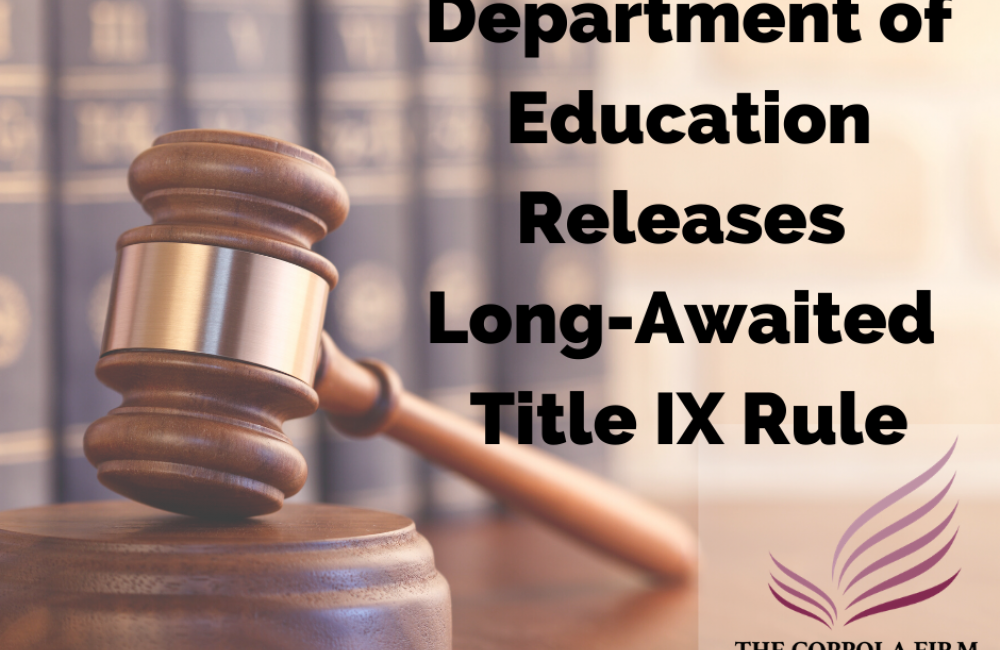On May 6, 2020, the U.S. Department of Education released its final rule under Title IX of the Education Amendments of 1972 (“Title IX”). Title IX prohibits sex discrimination in programs that receive federal funding, and the new rule sets forth many changes for schools. This post provides a quick primer on what you need to know about the final rule.
- The new rule becomes effective August 14, 2020.
- Sexual harassment is more broadly defined to include (1) quid pro quo sexual harassment by a school employee; (2) any unwelcome conduct that a reasonable person would find to be so severe, pervasive and objectively offensive that it denies a person equal educational access; and (3) any instance of sexual assault, dating violence, domestic violence, or stalking. If a complaint doesn’t meet this definition, it must be dismissed.
- There are new notification requirements for schools to ensure access to the school’s Title IX coordinator. For example, schools must provide the Title IX coordinator’s contact information to applicants (both students and employees) and parents/guardians of elementary and secondary school students.
- Elementary and secondary schools are required to respond promptly when any school employee has notice of sexual harassment.
- Victims are permitted to complain of sexual harassment at any time of day and can submit their complaints in person, or by mail, phone, or email. Only formal complaints need be investigated, however.
- Schools must offer “supportive measures” to complainants. Supportive measures are individualized services reasonably available that are non-punitive, non-disciplinary, and not unreasonably burdensome to the other party while designed to ensure equal educational access, protect safety, or deter sexual harassment.
- Colleges will be required to hold live hearings and must permit cross-examination of both the accuser(s) and the accused. Live hearings are optional for primary, secondary, and other specialized schools, but the parties must be able to submit written questions.
- The accused is presumed innocent prior to the investigative and decision-making process.
- Schools have discretion to offer and facilitate informal resolution options, such as mediation or restorative justice, as long as both parties give voluntary, informed, written consent to the informal resolution. Parties cannot be required to participate in involuntary resolution. Informal resolution is not available where there are allegations that an employee sexually harassed a student.
- Retaliation against complainants is prohibited.
- Schools are required to select a standard of evidence to apply to Title IX investigations. They may choose either a preponderance of the evidence standard or a clear and convincing evidence standard. The school must apply the selected standard consistently to proceedings for all students and employees, including faculty.
- Both parties to an investigation have an equal right to an appeal.
- A school may be considered legally culpable for mishandling accusations if it acts with deliberate indifference in carrying out mandates to provide support to victims and to investigate complaints fairly.
The attorneys at The Coppola Firm routinely provide support to organizations required to comply with Title IX. If you have questions about how to comply with the new rule, contact us. We stand ready to assist you.

